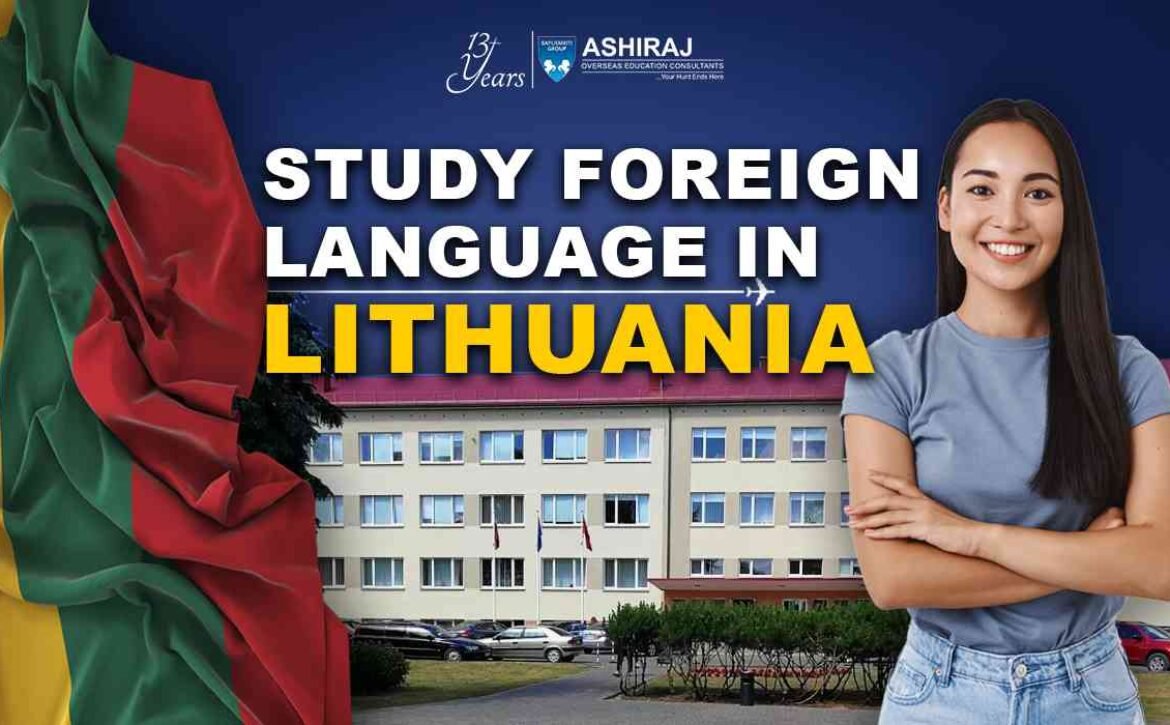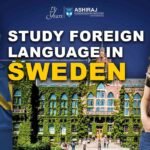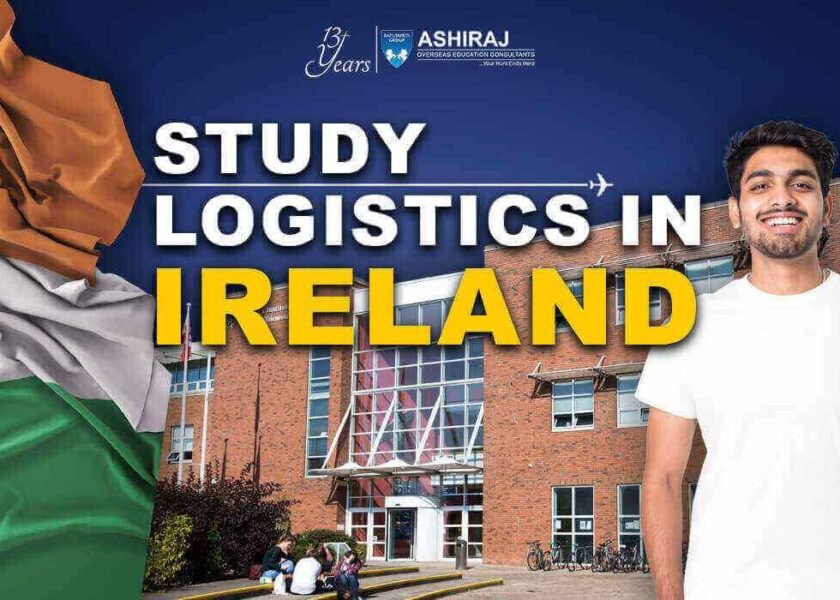
Foreign Language in Lithuania
Foreign Language in Lithuania is a pivotal aspect of the country’s educational and cultural landscape. Lithuania, known for its rich history and vibrant cultural heritage, places significant emphasis on the study and mastery of foreign languages. With the advent of globalization and increasing interconnectedness, proficiency in foreign languages has become indispensable for individuals seeking to thrive in the global arena. In Lithuania, foreign language education is not only viewed as a means of communication but also as a gateway to broader horizons, offering opportunities for personal and professional growth.
Lithuania’s commitment to promoting foreign language education is evident in its educational system, where students are encouraged to learn multiple languages from an early age. The inclusion of foreign language instruction in schools reflects Lithuania’s dedication to fostering linguistic diversity and intercultural understanding. Moreover, proficiency in foreign languages enhances Lithuania’s competitiveness in the global economy by facilitating international trade, collaboration, and cultural exchange. Foreign Language in Lithuania thus plays a crucial role in shaping the country’s future and strengthening its ties with the international community.
Why Study Foreign Language in Lithuania?
- Cultural Enrichment: Lithuania boasts a rich cultural heritage, and studying a foreign language in the country provides a unique opportunity to immerse oneself in its diverse cultural tapestry.
- Global Opportunities: Proficiency in a foreign language opens doors to global opportunities, whether in education, career advancement, or cultural exchange.
- Enhanced Communication Skills: Learning a foreign language improves communication skills, fostering better interpersonal relationships and facilitating cross-cultural understanding.
- Competitive Edge: In today’s globalized world, multilingualism is increasingly valued by employers. Mastering a foreign language in Lithuania gives individuals a competitive edge in the job market.
- Academic Excellence: Lithuania offers high-quality language education programs, with experienced instructors and modern teaching methods that enhance the learning experience.
- Gateway to Europe: As a member of the European Union, Lithuania serves as a gateway to Europe. Proficiency in Lithuanian and other European languages opens doors to travel, study, and work opportunities across the continent.
- Personal Growth: Learning a foreign language fosters personal growth and development, challenging individuals to think critically and broaden their perspectives.
- Cross-Cultural Understanding: Studying a foreign language in Lithuania promotes cross-cultural understanding and appreciation, fostering respect for diversity and inclusivity.
Foreign Language in Lithuania offers a multitude of benefits, making it an ideal destination for language learners seeking both personal and professional growth.
Top Universities to Study Foreign Language in Lithuania
University | QS World University Rankings 2023 | Type of University | Average Annual Fees | Programs Offered |
Vilnius University | 801-1000 | Public | €1,500 – €3,000 | Linguistics, Translation Studies, Language Teaching |
Vytautas Magnus University | 1001-1200 | Public | €1,000 – €2,500 | Applied Linguistics, Intercultural Communication, ESL |
Kaunas University of Technology | 1001-1200 | Public | €1,200 – €2,800 | Language Technology, International Business Communication |
ISM University of Management and Economics | 1001-1200 | Private | €3,000 – €5,000 | Business English, Intercultural Communication, ESL |
Klaipėda University | 1201+ | Public | €1,000 – €2,500 | Baltic Philology, Language and Literature, Translation |
Foreign Language in Lithuania thrives within its top universities, offering a diverse array of programs tailored to language enthusiasts. Vilnius University, a prestigious public institution, stands out with its comprehensive offerings in linguistics, translation studies, and language teaching. Vytautas Magnus University and Kaunas University of Technology, both public institutions, provide programs in applied linguistics, intercultural communication, and language technology at accessible fees. Meanwhile, ISM University of Management and Economics, a private institution, focuses on business English and intercultural communication, catering to professionals seeking language skills in the corporate world. Klaipėda University, another public institution, offers programs in Baltic philology, language, and literature, providing a unique perspective on language studies. These universities not only prioritize academic excellence but also nurture a vibrant language-learning community, making Lithuania an attractive destination for language enthusiasts.
Course Curriculum for Foreign Language in Lithuania
- Language Proficiency Levels: The curriculum in Lithuania typically follows the Common European Framework of Reference for Languages (CEFR), ensuring systematic progression from beginner to advanced levels.
- Core Language Skills: Emphasis is placed on developing four essential language skills: listening, speaking, reading, and writing, through interactive classroom activities, group discussions, and language labs.
- Cultural Studies: In addition to language proficiency, the curriculum often includes modules on the cultural aspects of the target language-speaking countries, providing students with insights into traditions, customs, and societal norms.
- Specialized Topics: Depending on the program and university, students may have the opportunity to explore specialized topics such as literature, history, business communication, and contemporary issues related to the target language-speaking regions.
- Practical Application: Many programs incorporate practical components such as internships, study abroad opportunities, and language immersion programs to enhance real-world language skills and cultural understanding.
- Technology Integration: With the advancement of technology, modern language programs in Lithuania integrate digital tools, online resources, and multimedia platforms to enhance language learning experiences.
Foreign Language in Lithuania programs are designed to equip students with linguistic proficiency, intercultural competence, and practical skills essential for global communication and collaboration. The comprehensive curriculum ensures that graduates are well-prepared to navigate diverse linguistic and cultural contexts effectively.
Eligibility Criteria & Admission Requirements for MS in Foreign Language in Lithuania
- Language Proficiency Tests: Applicants are typically required to provide scores from standardized English proficiency tests such as IELTS or TOEFL. Minimum score requirements vary by institution and program.
- Standardized Aptitude Tests: Some programs may also require scores from standardized aptitude tests like GRE or GMAT, especially for advanced or specialized language programs.
- Academic Certificates: Applicants are expected to provide academic transcripts and certificates demonstrating completion of previous education levels, such as high school diplomas or bachelor’s degrees.
- Work Experience: While not always mandatory, certain language programs may prefer applicants with relevant work experience, especially if the program focuses on language for specific professions or industries.
- Passport & Student Visa: International applicants must possess a valid passport and obtain a student visa to study in Lithuania. Visa application processes and requirements may vary by nationality.
IELTS or TOEFL and GRE or GMAT Scores:
Test | Minimum Score |
IELTS | 6.5 |
TOEFL | 80 |
GRE | 300 |
GMAT | 550 |
Foreign Language in Lithuania programs typically require applicants to meet these eligibility criteria to ensure that students have the necessary language proficiency and academic preparedness to succeed in their studies. Additionally, possessing relevant work experience and fulfilling visa requirements are crucial for international students planning to study in Lithuania.
Documents Required for Studying Foreign Language in Lithuania
- Passport: A valid passport is essential for international students seeking admission to language programs in Lithuania. Ensure that your passport has sufficient validity beyond the duration of your intended stay.
- Letters of Recommendation (LOR): Typically, two letters of recommendation from academic or professional references are required. LORs should attest to your academic abilities, character, and suitability for the program.
- Statement of Purpose (SOP): The SOP is a crucial document outlining your academic background, career goals, and reasons for choosing the particular language program in Lithuania.
- Curriculum Vitae (CV): A comprehensive CV highlighting your educational qualifications, work experience, language proficiency, and any relevant extracurricular activities or achievements.
- Official High School Transcripts and Educational Certificates: Submit official transcripts and certificates from your high school or previous educational institutions as proof of academic qualifications.
- Work Experience Certificate: If applicable, provide a work experience certificate detailing your professional experience and relevant skills.
- Proof of Financial Resources: Demonstrate your ability to cover tuition fees, living expenses, and other costs associated with studying in Lithuania. This could include bank statements, scholarship award letters, or sponsorship letters.
Ensuring that you have all the necessary documents prepared and organized is crucial for a smooth application process for Foreign Language in Lithuania programs. Pay attention to specific requirements outlined by the respective universities or language institutes to avoid any delays or complications in your application.
Admission Process for Foreign Language in Lithuania
- Research Programs: Explore the variety of foreign language programs available in Lithuania, considering factors such as language proficiency levels, specialization, and program duration.
- Check Eligibility Criteria: Review the admission requirements for each program, including language proficiency tests (IELTS or TOEFL), standardized aptitude tests (GRE or GMAT), academic qualifications, and any work experience prerequisites.
- Prepare Required Documents: Gather necessary documents such as passport, letters of recommendation (LOR), statement of purpose (SOP), curriculum vitae (CV), official transcripts, educational certificates, work experience certificates, and proof of financial resources.
- Submit Application: Complete the application process online or through the university’s admissions portal, ensuring that all required documents are accurately uploaded and submitted before the deadline.
- Language Proficiency Tests: Schedule and take the required language proficiency tests (IELTS or TOEFL) and aptitude tests (GRE or GMAT), if applicable, well in advance of application deadlines.
- Attend Interviews (if required): Some programs may require interviews as part of the selection process. Prepare adequately and attend interviews as scheduled.
- Wait for Admission Decision: After submitting your application, await notification from the university regarding your admission status. This may take several weeks, so remain patient during the evaluation process.
- Acceptance and Visa Application: Upon receiving an offer of admission, accept the offer and proceed with the student visa application process. Follow all instructions provided by the university and relevant authorities to obtain your student visa for Foreign Language in Lithuania programs.
Navigating the admission process requires careful attention to detail and adherence to deadlines, ensuring a successful application for foreign language programs in Lithuania.
“Education is the most powerful weapon which you can use to change the world.”
Nelson Mandela
Cost of Foreign Language Course in Lithuania
- Tuition Fees: Tuition fees for foreign language programs in Lithuania vary depending on the university, program duration, and level of study. On average, tuition fees range from €1,000 to €5,000 per academic year.
- Living Expenses: The cost of living in Lithuania is relatively affordable compared to other European countries. Monthly expenses including accommodation, food, transportation, and miscellaneous items typically range from €400 to €700, depending on the city and lifestyle.
- Accommodation: Options for accommodation include university dormitories, private apartments, and shared housing. Rent for a single room in a university dormitory may range from €100 to €300 per month, while private apartments may cost between €200 to €500 per month.
- Books and Supplies: Budget for textbooks, study materials, and other supplies needed for your language studies. These expenses can vary but typically range from €100 to €300 per academic year.
- Health Insurance: International students are required to have health insurance coverage during their stay in Lithuania. The cost of health insurance varies depending on the coverage and provider, with average annual premiums ranging from €300 to €600.
- Additional Expenses: Be prepared for additional expenses such as visa fees, residence permit fees, travel costs, and entertainment expenses.
Foreign Language in Lithuania offers affordable tuition fees and reasonable living expenses, making it an attractive destination for language learners seeking quality education without breaking the bank.
Scholarships for Foreign Language Courses in Lithuania
Scholarship Name | Amount (per year) | Application Deadline |
Lithuanian Government Scholarship | Full tuition waiver, monthly stipend (€380-€650), accommodation allowance | March 1st (for the upcoming academic year) |
Vilnius University Scholarships | Varies (partial tuition waivers, stipends) | April 1st (for the upcoming academic year) |
Kaunas University of Technology Scholarships | Varies (partial tuition waivers, stipends) | May 1st (for the upcoming academic year) |
Vytautas Magnus University Scholarships | Varies (partial tuition waivers, stipends) | June 1st (for the upcoming academic year) |
Erasmus+ Scholarships | Varies (tuition fee coverage, travel allowance, monthly stipend) | February 1st (for the upcoming academic year) |
Foreign Language in Lithuania programs offer various scholarships to international students, making language education more accessible and affordable. The Lithuanian Government Scholarship provides comprehensive support, including full tuition waivers, monthly stipends, and accommodation allowances. Universities such as Vilnius University, Kaunas University of Technology, and Vytautas Magnus University also offer scholarships with partial tuition waivers and stipends. Additionally, the Erasmus+ program provides opportunities for international students to study in Lithuania with financial support for tuition fees, travel, and living expenses. Applicants should pay attention to application deadlines and eligibility criteria for each scholarship to maximize their chances of securing funding for their language studies in Lithuania.
Career Opportunities After Foreign Language in Lithuania
Job Profile | Average Salary |
Language Teacher | €12,000 – €18,000 per year |
Translator/Interpreter | €15,000 – €25,000 per year |
International Business Liaison | €20,000 – €30,000 per year |
Content Writer/Editor | €15,000 – €22,000 per year |
Tour Guide | €10,000 – €15,000 per year |
Foreign Language in Lithuania opens up diverse career opportunities across various industries. Language teachers are in demand in schools, language institutes, and private tutoring centers, with salaries ranging from €12,000 to €18,000 per year. Translators and interpreters play crucial roles in facilitating communication across languages, earning between €15,000 to €25,000 annually.
Professionals proficient in foreign languages also find employment as international business liaisons, assisting companies in global communication and negotiation, with salaries ranging from €20,000 to €30,000 per year. Content writers and editors contribute to various publications, websites, and marketing materials, earning salaries between €15,000 to €22,000 annually.
Furthermore, individuals knowledgeable about local culture and history can work as tour guides, offering guided tours to tourists, with average salaries ranging from €10,000 to €15,000 per year. With a solid foundation in a foreign language, graduates in Lithuania can explore rewarding career paths that capitalize on their linguistic skills and cultural knowledge.
Frequently Asked Questions About Foreign Language in Lithuania
Yes, many language programs in Lithuania are offered in English, making them accessible to international students.
Universities in Lithuania often offer programs in languages such as English, German, French, Spanish, Russian, and others.
Yes, there are various scholarships provided by the Lithuanian government and universities to support international students pursuing foreign language studies.
The average cost of living in Lithuania ranges from €400 to €700 per month, covering accommodation, food, transportation, and miscellaneous expenses.
The duration of foreign language programs varies, but most bachelor’s programs last 3-4 years, while master’s programs are typically 1-2 years.
While not always mandatory, some programs may prefer applicants with relevant work experience, especially for specialized language studies.
Commonly accepted tests include IELTS and TOEFL for English programs, and specific language proficiency exams for other languages.
Yes, many programs offer opportunities for internships, study abroad, or language immersion experiences to enhance practical language skills.
Yes, international students are generally allowed to work part-time during their studies, offering opportunities to gain practical experience.
Graduates can pursue careers as language teachers, translators, interpreters, international business liaisons, content writers, editors, or even tour guides, depending on their language proficiency and interests.




